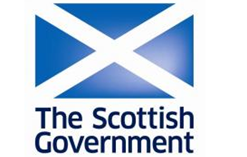Having already completed a Discovery and Alpha phase, Scottish Government’s Digital Commercial Service is now looking to work with a partner, or consortium, to deliver the Beta phase of their payments service. Interested companies are invited to bidder days on 24th and 25th of March in CodeBase Edinburgh (10:00-13:00 on both days). Tickets for the 24th are already sold out so be quick and register here: https://www.eventbrite.co.uk/e/scottish-payments-platform-project-beta-bidder-day-tickets-94159081347
On the day, the Payments team will present the aims and objectives of the Beta phase as well as the design, development and strategic context it sits within. Further details on the design of the service, target architecture, organisations we are working with and journey to a live service will also be available.
Background
Scottish Government is in the process of establishing a common payments service, with the potential for use across the Scottish public sector.
There are currently multiple ways of making and receiving payments across government and the public sector – there is clear duplication of effort and spend and this has created a confused landscape for both citizens and government
Existing legacy systems, and the people and resources that support them, are being put under increased and potentially unsustainable pressure to deliver beyond their capability and capacity.
The volume and values of transactions is only set to grow. We are being asked to handle new and complex requirements, through the introduction of new powers and an expectation that Government will provide an increased range of digital services, and deliver them through technology and processes that are not fit for purpose. Based on the data we have been able to correlate Scottish Government is currently processing around 1.5 million inbound transactions and making around 3.9 million payments out. Even with a relatively conservative estimate, this is set to increase to a total of 25 million transactions by the time all powers within the Scotland Act are realised.

